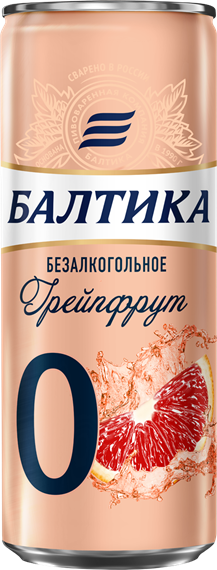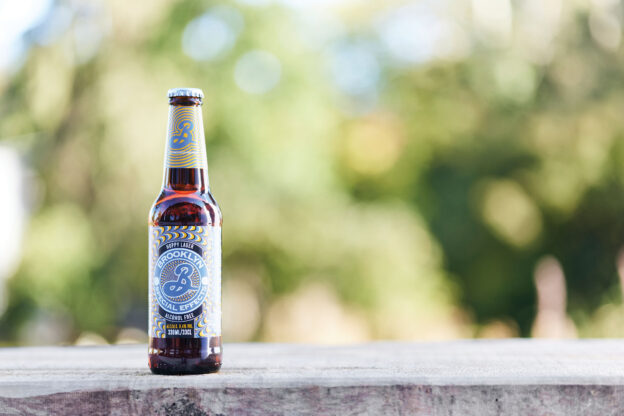Specific to Asia, Carlsberg has five brands brewed in China and one in Malaysia, while it has made its presence felt in Hong Kong and Singapore markets, it is now keen on expanding to other markets in the region. Alcohol free segment accounted for the largest revenue size of USD 2 billion in 2017 owing to the increasing adoption of healthier lifestyles coupled with the benefits of non-alcoholic beer in China, India, and Japan.
Growing at over 7.5% CAGR
According to a Graphical Research report, the Asia Pacific non-alcoholic beer market size was valued at USD 4.3 billion in 2017 and is expected to grow at over 7.5% CAGR from 2018 to 2024. As of now, China is leading in this segment in Asia and the drivers are the adoption of a healthy lifestyle along with shifting consumer preferences towards ‘Nolo’. The report said that increasing awareness for negative health effects of alcohol consumption is among major factors boosting market penetration.

China holds nearly 30% market share in ‘Nolo’
China holds nearly 30% share in launching new non-alcoholic beer products. As mentioned earlier, Carlsberg has four brands – WuSu Fresh Orange & C; WuSu Pineapple & C; Xixia Fresh Orange & C; Xixia Pineapple & C, and Chongqing Beer AFB in China and Carlsberg Alcohol Free in Singapore and Hong Kong while in Malaysia it vends Nutrimalt which is said to be nonalcoholic malt beverage that is nourishing and packed with vitamins and nutrients such as Vitamin C & B complex. It is said to be a great energy booster after a workout.
Manufacturers are launching new beverage brands with different flavours to expand consumer base as it is estimated that there is a sizable market which is looking at healthy brews. An increased attention on both physical and mental health has been cited as a cause of the growth of nolo products, which are increasingly popular among younger consumers.
However, in India the trend is not that perceptible, though non alcoholic brews are making the rounds, mostly propped by young beer drinkers who are either switching from standard beers to non-alcoholic variants or they are willing to taste new beers, both with alcohol or no or low alcohol content ones.

India sees slow but steady growth
Some of the ‘Nolo’ in India include Budweiser 0.0%; Heineken 0.0% non alcoholic lager beer; Kingfisher Ultra non-alcoholic beer; Hoegaarden 0.0% non-alcoholic beer; Kingfisher Radler – non-alcoholic malt drink; Coolberg Cranberry non-alcoholic beer; Crofters non-alcoholic beer; and Barbican. Carlsberg is said to be exploring the market opportunity in India with regard to ‘Nolo’. But it has been steadfast in its commitment to creating a culture of responsible drinking by promoting moderate consumption of products and addressing alcohol-related harm in society. “We therefore aim to celebrate the positive aspects of moderate beer consumption and to position beer as a relevant and responsible choice with a role to play in the ‘good life’ to which modern consumers aspire.”
Young beer drinkers call the shots
As per a survey by Mintel about 40% of young beer drinkers in India are interested in switching from standard-strength beer to low calorie or non alcoholic variants of the brew. The survey pointed out that internet users who were contacted and who had consumed beer in the past six months were interested in exploring alternatives to beer.
Carlsberg’s ‘Sail’ strategy
Carlsberg has set sail for the next five-year journey with its 2016 ‘Sail’ strategy. Since its launch, ‘Sail’ 27 has been providing a clear overall direction for Carlsberg resulting in a healthy and strong company. The company said that “In developing Sail 27, we have aimed at keeping and sharpening our strong strategic, organisational and financial dynamics while ensuring that our direction-setting was refreshed and that our new strategy reflects expected consumer, customer, societal, regulatory, economic and geopolitical trends.”
The Chief Executive Officer Cees ‘t Hart said, “SAIL’27 is the exciting next step in the evolution of Carlsberg. Co-created by a large group of employees and leaders, and built around our purpose, SAIL’27 has clear choices for brands, categories, markets and capabilities, and steps up our ambitions for top- and bottom-line growth.” In essence, SAIL’27 focusses on five strategic levers – portfolio, geographies, execution, culture and funding the journey – for which the company has made distinct strategic choices, defining the focus of our efforts and resource allocation.
Our strategic levers and choices should be viewed as an integrated set of activities that together will drive value for all stakeholders. “SAIL’27 is built around our purpose of brewing for a better today and tomorrow, and our ambition of being the most successful, professional, and attractive brewer in our markets,” Cees ‘t Hart adds.

Collaborative effort
SAIL’27 is a collaborative, company-wide effort, co-created by over 200 Carlsberg employees from more than 30 different markets. “Talents, experts and leaders from all over Carlsberg Group have brought their day-to-day knowledge and fresh ideas into this new strategy. They have assessed the impact of the current strategy on their local business or function, shared learnings and trends they see impacting the business and challenged our thinking on the future strategy. By bringing such a diverse set of voices the process we have created an even stronger strategic path for Carlsberg,” says Marcela Linke, Director, Group Strategy.
Carlsberg said that the beer category continues to offer attractive long-term volume and value growth opportunities, though with different growth dynamics between categories and markets. Our portfolio choices target these growth opportunities. In addition, the company sees further attractive growth opportunities for selected categories beyond beer. Today, the Group has attractive widespread geographical presence and no. 1 or 2 positions in 22 markets across Western Europe, Asia and Central & Eastern Europe. While market dynamics are different in the three regions, they all offer appealing long-term revenue and earnings growth opportunities.
Carlsberg ‘Nolo’ brands grow by 11%
Carlsberg’s recent financial statement revealed its ‘Nolo’ brands grew by 11%, making it one of the most successful areas of the business for the brewing giant. While sales of other household names owned by Carlsberg shrunk (namely Tuborg and the Carlsberg brand itself), the ‘nolo’ range demonstrated quite a sizeable growth, which is perhaps indicative of a shift in consumer habits towards alcohol-free beverages.
Carlsberg said it saw good results for its recent launches in the category, including Baltika Zero Grapefruit and Raspberry, Brooklyn Special Effects and Somersby 0.0. In addition, the brewing group entered the Asian market with similar ‘nolo’ products in 2020 too, with the launch of Chongqing Beer AFB in China and Carlsberg Alcohol Free in Singapore and Hong Kong.
What’s driving ‘nolo’ growth?
“Brewers have had to adapt to unprecedented market conditions and one area of success is Carlsberg’s low-ABV or alcohol-free ‘nolo’ brands, which are notable for 11% growth as consumers continue to moderate their alcohol intake,” said Ryan Whittaker, Consumer Analyst at GlobalData.
“Increased health consciousness, which includes both physical and mental health concerns, is causing many to reduce their alcohol intake, and the pandemic has brought all of this to the fore.”
According to GlobalData, 28% of global consumers claim to be buying less beer during the pandemic and approximately 27% of consumers say that they are extremely concerned about their physical health. What’s interesting is that these trends correlate with age, with millennials being both the most extremely concerned about their health and most likely to be buying less beer than before the pandemic. Even otherwise, the millennials are known to experiment, try out new products and that is driving manufacturers to innovate.

